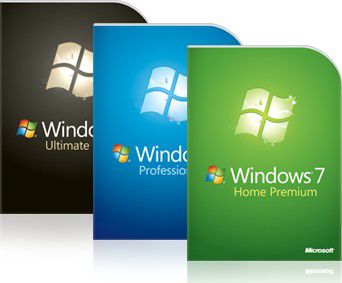From our front-page news:
Yesterday, a fierce storm blew through the Internet targeting Windows 7, and the reports weren't good. It's been discovered that there is a severe enough issue that many are believing could result in a delayed Windows 7 release, although that would be tough to believe, since the RTM has just been released to MSDN subscribers today. According to Microsoft though, they see no issue, and if there is one, it's not their fault.
The problem lies with the built-in disk-checker, "chkdsk". When run with the /r switch, on a secondary drive, the program suffers from a major memory leak that effectively hogs all of your system RAM, and ultimately, gives you the infamous Blue Screen of Death. While many people have verified that this issue exists, Microsoft is adamant in stating that they've yet to experience the issue, and they believe if anything, it would be caused by hardware, not their software.
"While we appreciate the drama of 'critical bug' and then the pickup of 'showstopper' that I've seen, we might take a step back and realize that this might not have that defcon level." is what Microsoft's Steven Sinofsky, president of the Windows Division, said, so it appears that they don't believe it to be a major issue at this point. It's also unknown whether or not this bug only exists in the RTM or not, because you'd imagine that if it has always existed, people would have discovered it long ago.
If anyone out there happens to be running any build of Windows 7, and you have a two-disk setup, and you are feeling a little brave, try out the chkdsk command, and see if the bug exists on your system. If your secondary drive is "E:", then the proper command would be, "chkdsk /r e:", without quotes.

On the Chris123NT's blog, a user name FireRX, who appears to be a Microsoft MVP, said, "the chkdsk /r tool is not at fault here. It was simply a chipset controller issue. Please update [your] chipset drivers to the current driver from your motherboard manufacturer. I did mine, and this fixed the issue. Yes, it still uses a lot of physical memory, because [you're] checking for physical damage, and errors on the Harddrive [you're] testing... Again, there is no Bug." FireRX also said he was sure a hotfix would be issued today.
<table border="0" width="100%"><tbody><tr><td>Source: Network World</td> <td>
</td></tr></tbody></table>
The problem lies with the built-in disk-checker, "chkdsk". When run with the /r switch, on a secondary drive, the program suffers from a major memory leak that effectively hogs all of your system RAM, and ultimately, gives you the infamous Blue Screen of Death. While many people have verified that this issue exists, Microsoft is adamant in stating that they've yet to experience the issue, and they believe if anything, it would be caused by hardware, not their software.
"While we appreciate the drama of 'critical bug' and then the pickup of 'showstopper' that I've seen, we might take a step back and realize that this might not have that defcon level." is what Microsoft's Steven Sinofsky, president of the Windows Division, said, so it appears that they don't believe it to be a major issue at this point. It's also unknown whether or not this bug only exists in the RTM or not, because you'd imagine that if it has always existed, people would have discovered it long ago.
If anyone out there happens to be running any build of Windows 7, and you have a two-disk setup, and you are feeling a little brave, try out the chkdsk command, and see if the bug exists on your system. If your secondary drive is "E:", then the proper command would be, "chkdsk /r e:", without quotes.

On the Chris123NT's blog, a user name FireRX, who appears to be a Microsoft MVP, said, "the chkdsk /r tool is not at fault here. It was simply a chipset controller issue. Please update [your] chipset drivers to the current driver from your motherboard manufacturer. I did mine, and this fixed the issue. Yes, it still uses a lot of physical memory, because [you're] checking for physical damage, and errors on the Harddrive [you're] testing... Again, there is no Bug." FireRX also said he was sure a hotfix would be issued today.
<table border="0" width="100%"><tbody><tr><td>Source: Network World</td> <td>
</td></tr></tbody></table>
